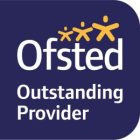
We are greatly inspired by Friedrich Froebel (1782 – 1852), the pioneering pedagogue who paved the way for holistic early childhood education that met young children’s unique needs and capabilities. He was the inventor of the Kindergarten in 1800s, the first holistic early years setting. Much of his practice and ideas on early childhood education and care have shaped the way in which we value the importance of play for children 0-7 across the world.
At Kinder Harmony we believe children learn best through play. We promote a richly nurturing, child-led learning through play environment that is underpinned by Froebelian Principles. We believe this supports children to become creative, self-motivated, free-thinking learners.
Froebelian Principles
Unity and connectedness
Everything in the universe is connected. The more one is aware of this unity, the deeper the understanding of oneself, others, nature and the wider world. Children are whole beings whose thoughts, feelings and actions are interrelated. Young children learn in a holistic way and learning should never be compartmentalised for everything links.
Autonomous learners
Each child is unique and what children can do rather than what they cannot, is the starting point for a child’s learning. Children learn best by doing things for themselves and from becoming more aware of their own learning. Froebelian educators respect children for who they are and value them for their efforts. Helping children to reflect is a key feature of a Froebelian education.
The value of childhood in its own right
Childhood is not merely a preparation for the next stage in learning. Learning begins at birth and continues throughout life.
Relationships matter
The relationships of every child with themselves, their parents, carers, family and wider community are valued. Relationships are of central importance in a child’s life.
Creativity and the power of symbols
Creativity is about children representing their own ideas in their own way, supported by a nurturing environment and people. As children begin to use and make symbols they express their inner thoughts and ideas and make meaning. Over time, literal reflections of everyday life, community and culture become more abstract and nuanced.
Engaging with nature
Experience and understanding of nature and our place in it, is an essential aspect of Froebelian practice. Through real life experiences, children learn about the interrelationship of all living things. This helps them to think about the bigger questions of the environment, sustainability and climate change.
Knowledgeable, nurturing educators
Early childhood educators who engage in their own learning and believe in principled and reflective practice are a key aspect of a Froebelian approach. Froebelian educators facilitate and guide, rather than instruct. They provide rich real life experiences and observe children carefully, supporting and extending their interests through ‘freedom with guidance’.
